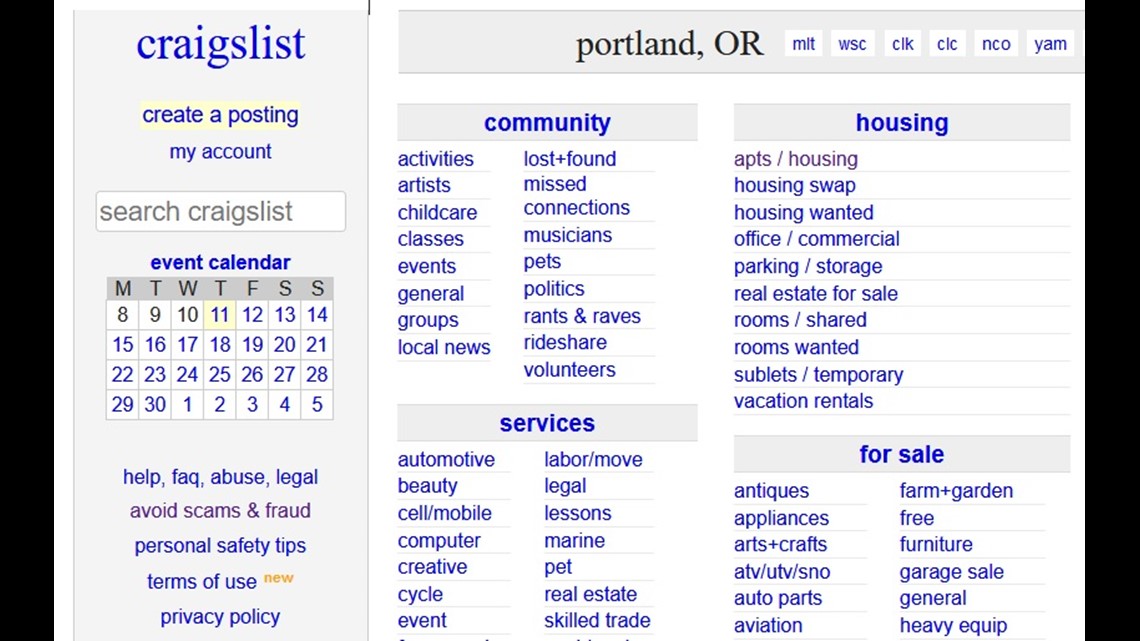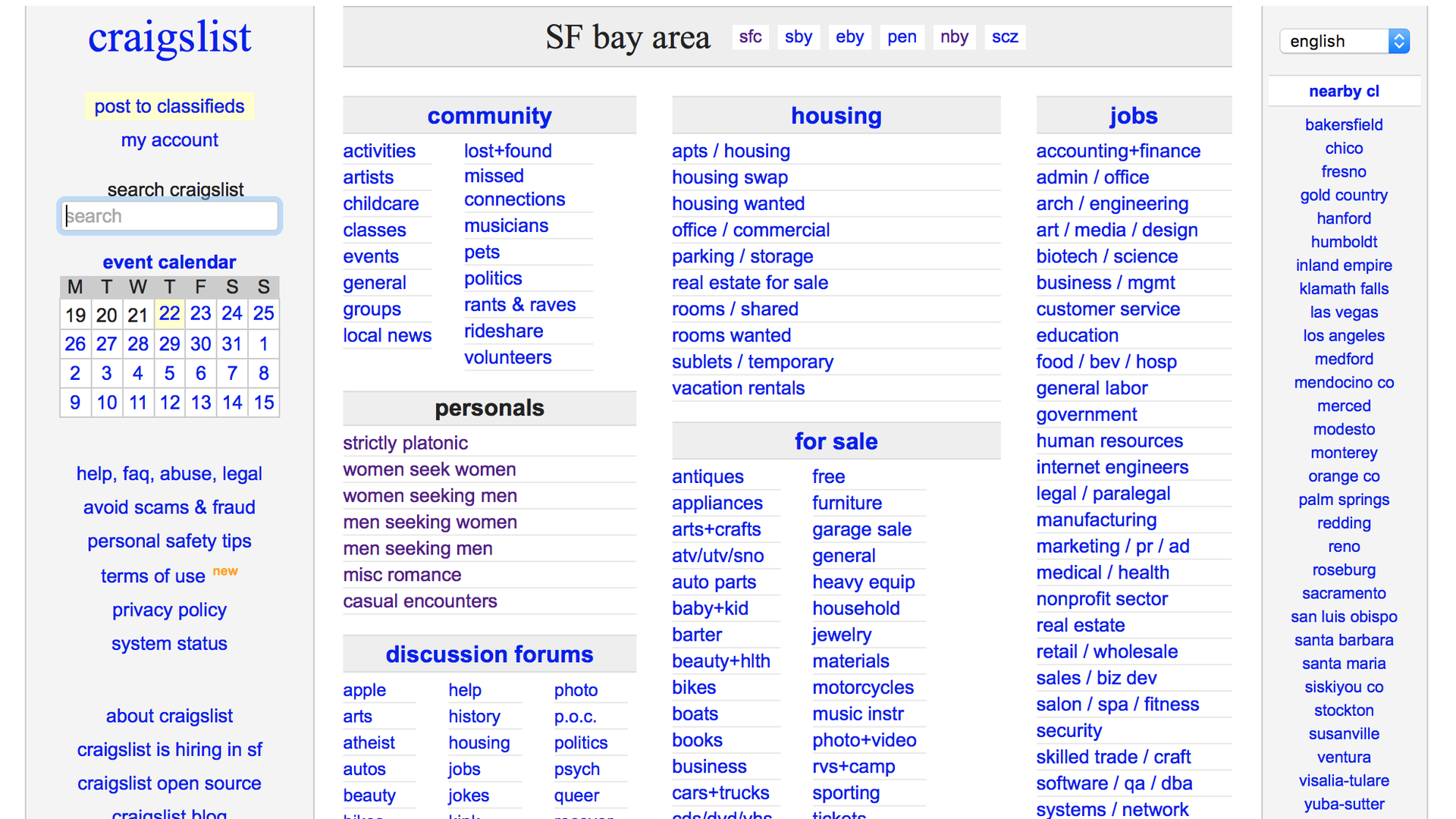G i ne Craigslist: The seemingly innocuous search term sparks immediate curiosity. What does it mean? What are the intentions behind it? This investigation delves into the various interpretations of “g i ne Craigslist,” exploring its potential contexts on the popular classifieds platform and examining the associated risks and ethical considerations. We’ll uncover the possible motivations of users employing this search, analyzing user profiles and hypothetical scenarios to shed light on this enigmatic query.
The ambiguity of “g i ne” leaves room for multiple interpretations, ranging from misspellings or variations of proper nouns to potentially illicit activities. Understanding the context within Craigslist’s diverse categories—from personal ads to services—is crucial in deciphering the intent. This exploration will not only analyze the linguistic nuances but also address the potential legal and ethical implications inherent in such searches and the platform’s use overall.
Understanding the Search Term “g i ne craigslist”

Source: kgw.com
The search term “g i ne craigslist” is ambiguous and requires careful analysis to understand its potential meanings and implications. The deliberate misspelling and the inclusion of “craigslist” suggest a connection to the online classifieds platform, but the core phrase “g i ne” lacks clear meaning without further context. Several interpretations are possible, ranging from innocent misunderstandings to potentially illicit activities.
Potential Interpretations of “g i ne craigslist”
The phrase “g i ne craigslist” likely results from a misspelling or a deliberate obfuscation of a more explicit term. The context of the search is crucial in determining the intended meaning. The following table Artikels potential interpretations, their contexts, likelihood, and implications.
| Interpretation | Context | Likelihood | Potential Implications |
|---|---|---|---|
| Misspelling of a product or service | User attempting to find a specific item or service on Craigslist, but misspelled the search term. | High | Frustration for the user, inability to find the desired item. |
| Coded language for adult services | User seeking adult content or services advertised on Craigslist. | Medium | Exposure to illegal or exploitative content, potential safety risks. |
| Typographical error | Accidental misspelling during a search for an unrelated item or service. | High | Irrelevant search results. |
| Intentional obfuscation of an illegal activity | User attempting to conceal their search for illegal goods or services. | Low | Legal repercussions for both the user and the advertiser. |
Craigslist’s Role in the Search, G i ne craigslist
Craigslist’s diverse categories make it a platform where various types of goods and services are advertised. The “g i ne” portion of the search term could potentially relate to items listed in categories such as “for sale,” “community,” “personals,” or “services,” depending on the intended meaning. The risk of encountering fraudulent or illegal listings is higher on Craigslist compared to more regulated online marketplaces.
Examples of listings that might contain similar terms (though not necessarily “g i ne” itself) include those offering adult services, personal items, or even services related to certain professions (if “g i ne” is a misspelling of a profession-related term). The potential risks include scams, fraudulent transactions, and encounters with dangerous individuals.
Potential User Intentions
The motivations behind searching for “g i ne craigslist” vary significantly. Understanding these motivations is crucial for assessing the potential risks and ethical implications.
- Accidental misspelling: A user simply made a typo while searching for a legitimate product or service.
- Seeking adult content or services: A user is intentionally searching for adult-related content or services, potentially engaging in illegal activities.
- Searching for a specific, obscure item: The term might represent a niche product or service not easily searchable through conventional means.
- Attempting to bypass Craigslist’s content filters: The user might be using coded language to evade detection of illegal or inappropriate content.
A hypothetical user journey might involve a user typing in a misspelled term, receiving irrelevant results, refining their search, and potentially encountering potentially illegal or unsafe listings.
Related Terms and Concepts
Understanding related terms helps in broadening the search and identifying potential contextual clues.
- Misspellings of similar phrases: Variations in spelling or similar-sounding terms could reveal the user’s intent.
- Related product or service categories: Identifying related categories on Craigslist helps understand the potential context of the search.
- Adult content s: These s could indicate the user’s intention to find adult content or services.
- Misspellings:
- Variations of “g i ne”
- Phonetic spellings
- Related Services:
- Adult services
- Escort services
- Dating services
Visual Representation of Data
A line graph could illustrate the frequency of the search term “g i ne craigslist” over time. The x-axis would represent time (e.g., months or years), and the y-axis would represent the search frequency. Data points would represent the number of searches performed for the term during each time period.
A heatmap on a geographical map could visualize the geographical distribution of the search term. The map would show regions with higher search frequencies in darker shades and lower frequencies in lighter shades. Data points would be the frequency of the search term within each geographical region.
A correlation matrix could show the relationship between the search term “g i ne craigslist” and other related terms. The chart would display the correlation coefficient between each pair of terms, indicating the strength and direction of their relationship.
Reports of inappropriate content on Craigslist, specifically concerning the “g i ne” category, have prompted renewed calls for stricter moderation. This follows a recent surge in unrelated searches, such as those for “peyton coffee hot pics,” peyton coffee hot pics , which highlights the challenges faced in regulating online platforms. The ongoing debate centers on balancing free speech with the need to protect users from harmful material, impacting the overall usability of Craigslist’s “g i ne” section.
Ethical and Legal Considerations
The search term and its potential uses raise several ethical and legal concerns. The potential for exploitation, fraud, and illegal activities necessitates careful consideration of the implications.
Legal issues might arise if the search term is used to facilitate illegal activities, such as the trafficking of goods or services. Ethical concerns center around the potential harm caused to individuals involved in such activities.
- Always verify the legitimacy of listings before engaging in any transactions.
- Never meet with strangers in isolated locations.
- Be wary of deals that seem too good to be true.
- Report suspicious activity to Craigslist and the appropriate authorities.
Last Recap

Source: axios.com
The investigation into “g i ne Craigslist” reveals a complex interplay of potential meanings, user intentions, and inherent risks. While the ambiguity of the search term allows for various interpretations, the context of Craigslist necessitates a cautious approach. Understanding the potential implications—both legal and ethical—is crucial for users and platform administrators alike. Further research, including large-scale data analysis of search term frequency and geographic distribution, could provide a more comprehensive understanding of this phenomenon.
Ultimately, responsible use and awareness of potential risks remain paramount when utilizing online classifieds.
